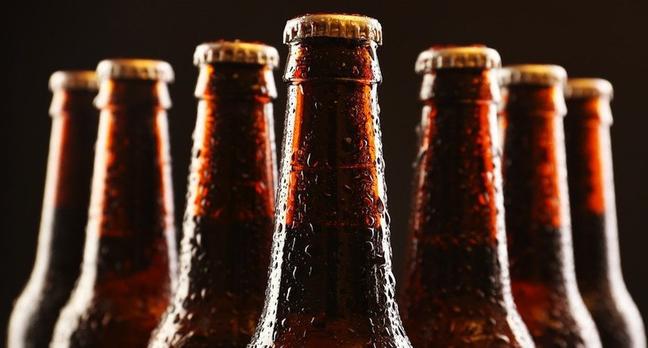Thousands of us may have raised a glass of the bubbly stuff as the clock ticked over into 2017, but many New Year’s revellers around Britain did the very opposite – and instead set down their drinks on the stroke of midnight.
Dry January, also known as Dryathlon, has soared in popularity over recent years. This year, the annual month-long sobriety challenge will see an estimated 20,000 committing to the cause, staying away from alcohol for 31 days to show the strength of their will and give their bodies a long overdue detox.
But, with scores of the self-righteous already patting themselves on the back, is it time to question whether they’re doing the right thing? Calling last orders for a month may seem like an undeniably healthy decision, but is Dry January actually good for you?

Four years ago, Dr Rajiv Jalan, of the Institute for Liver and Digestive Health, conducted a small study to gauge what benefits Dry January actually brought. Testing all aspects of physical health, Jalan researched the effects of abstaining from alcohol on 14 volunteers – and the results spoke for themselves.
Liver fat fell, on average, by 15 per cent. A common precursor to liver damage, the build up of fat caused by excessive alcohol consumption can create inflammation, leading to liver disease.
Blood glucose dropped by 16 per cent on average – showing that the body becomes more sensitive to insulin in the absence of alcohol. And overall blood cholesterol – one of the main risk factors for heart disease – fell by almost 5 per cent.

Sleep quality improved, the subjects dropped 1.5 kilograms in weight, on average, and also reported feeling more alert and bright in every day life.
So Dry January is a winner, right? These results show that physically – and mentally – taking a month’s break from the bottle is beneficial in the extreme. So why does the practice still face opposition from some of medicine’s most senior organisations?
The British Liver Trust very publicly doesn’t support Dry January. Suggesting that the month of alcohol avoidance simply sets up drinkers to hit the bottle twice as hard when February rolls around, this damning of Dry January is one echoed by many doctors and specialists around the UK.
Instead, the powers that be recommend that your resolution should be to cut down on weekly units for a whole year rather than cut out all alcohol for just one month. This way, they say, your body will reap the benefits over time, rather than being lulled into a false sense of security and then bombarded with booze once the month is done – a relapse which will undo all the good work achieved in January.

So is Dry January actually good for you? Of course, in theory – and during the days you stay off the sauce. But the idea itself is flawed. Unless the visible benefits persuade you to go teetotal for good, the moment you reintroduce alcohol on February 1st, your body will forget the progress you’ve made.
Pounds will be piled back on, your liver will start working overtime once more and your cholesterol will sky rocket. By all means, Dry January is good for your willpower and ego. But your body? Not so much.

Become a Gentleman’s Journal Member?
Like the Gentleman’s Journal? Why not join the Clubhouse, a special kind of private club where members receive offers and experiences from hand-picked, premium brands. You will also receive invites to exclusive events, the quarterly print magazine delivered directly to your door and your own membership card.


